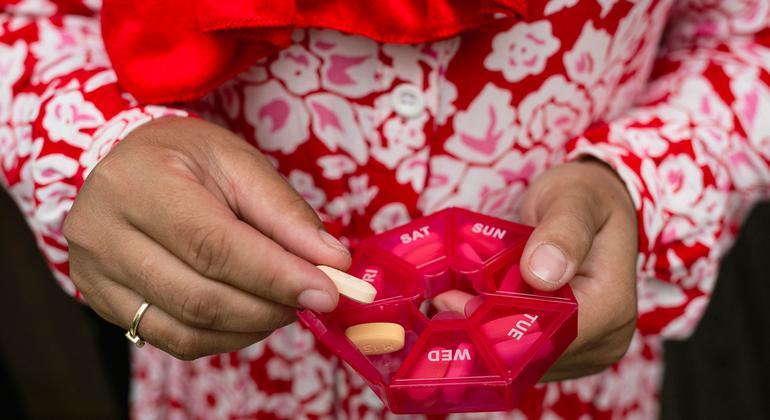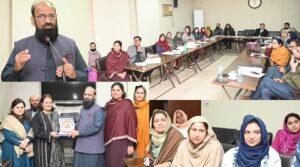Presenting its report on World AIDS Day 2025, Overcoming disruption and transforming the AIDS responseUNAIDS said international assistance has declined sharply, and OECD projections show external funding for health could fall by 30-40 percent in 2025 compared to 2023.
The impact has been immediate and severe, especially in low- and middle-income countries hard hit by HIV.
“The funding crisis has revealed the fragility of the progress we have fought so hard to achieve,” said Winnie Byanyima, Executive Director of UNAIDS, speaking in Geneva.
“Behind every piece of information in this report are people… babies who were not tested for HIV, young women deprived of preventive support, and communities suddenly left without services and care. We cannot abandon them.”
Prevention services are the most affected
UNAIDS reports widespread disruption to HIV prevention, testing and community programs:
- In 13 countries, the number of people newly starting treatment has decreased.
- Shortages of HIV testing kits and essential medicines have been reported in Ethiopia and the Democratic Republic of the Congo.
- Distribution of preventative medications plummeted. 31 percent in Uganda, 21 percent in Vietnamand 64 percent in Burundi.
- 450,000 women in sub-Saharan Africa lost access to “mentor mothers,” trusted community workers who link them to care.
- Nigeria recorded a 55 percent drop in the distribution of condoms.
Before the crisis, adolescent girls and young women were already severely affected. Every day there are 570 new HIV infections among young women from 15 to 24 years old. UNAIDS warns that dismantled prevention programs leave them even more vulnerable.
Community-led organizations, the backbone of HIV outreach, are also under pressure. On 60 percent of organizations run by women They say they have had to suspend essential services.
UNAIDS modeling now suggests that failure to restore prevention efforts could lead to a 3.3 million additional new HIV infections between 2025 and 2030.
Human rights setbacks deepen risk
The funding crisis unfolds amid growing restrictions on civil society and a rise in punitive laws targeting marginalized groups most affected by HIV.
For the first time since UNAIDS began tracking such legislation, the number of countries criminalizing same-sex relationships and gender expression increased in 2025. Worldwide:
- 168 countries criminalize some aspect of sex work
- 152 criminalize small-scale drug possession
- 64 criminalize same-sex relationships
- 14 criminalize transgender people
Restrictions on civil society, including onerous registration rules and limits on receiving international assistance, are further undermining access to services.
Zimbabwe: “People have not stopped needing services: they have lost access”
Speaking from Harare, Dr Byrone Chingombe, technical director of the Center for Sexual Health and HIV/AIDS Research (CeSHHAR), described the real-world impact of funding cuts in Zimbabwe.
“2025 has been a difficult year,” he stated. “When funding was stopped in January, service providers were laid off overnight. The medications were on the shelves, but the people delivering them were gone. That disrupted compliance and, more importantly, disrupted trust.”
CeSHHAR HIV testing “case finding” rates have decreased by more than 50 percenta drop he says reflects a loss of access, not a reduction in need. Already overstretched, community-led teams are trying to fill the void.
He highlighted two areas of hope: community resilience and new long-acting prevention technologies, including injectable lenacapavir, whose approval was recently fast-tracked in Zimbabwe and is now expected to arrive in the country in early 2026.
A woman living with HIV receives medication in a hospital in Zimbabwe.
A call to action
UNAIDS calls on world leaders to:
- Reaffirm global solidarity and multilateralismincluding commitments made at the recent G20 Leaders Summit in South Africa
- Maintain and increase funding for HIVespecially for countries most dependent on external assistance
- Invest in innovationincluding affordable long-acting prevention
- Defend human rights and empower communitiesthat remain critical to successful responses to HIV
“This is our time to choose,” Byanyima said. “We can let these shocks undo decades of hard-won gains, or we can unite behind the shared vision of ending AIDS. Millions of lives depend on the decisions we make today.”




